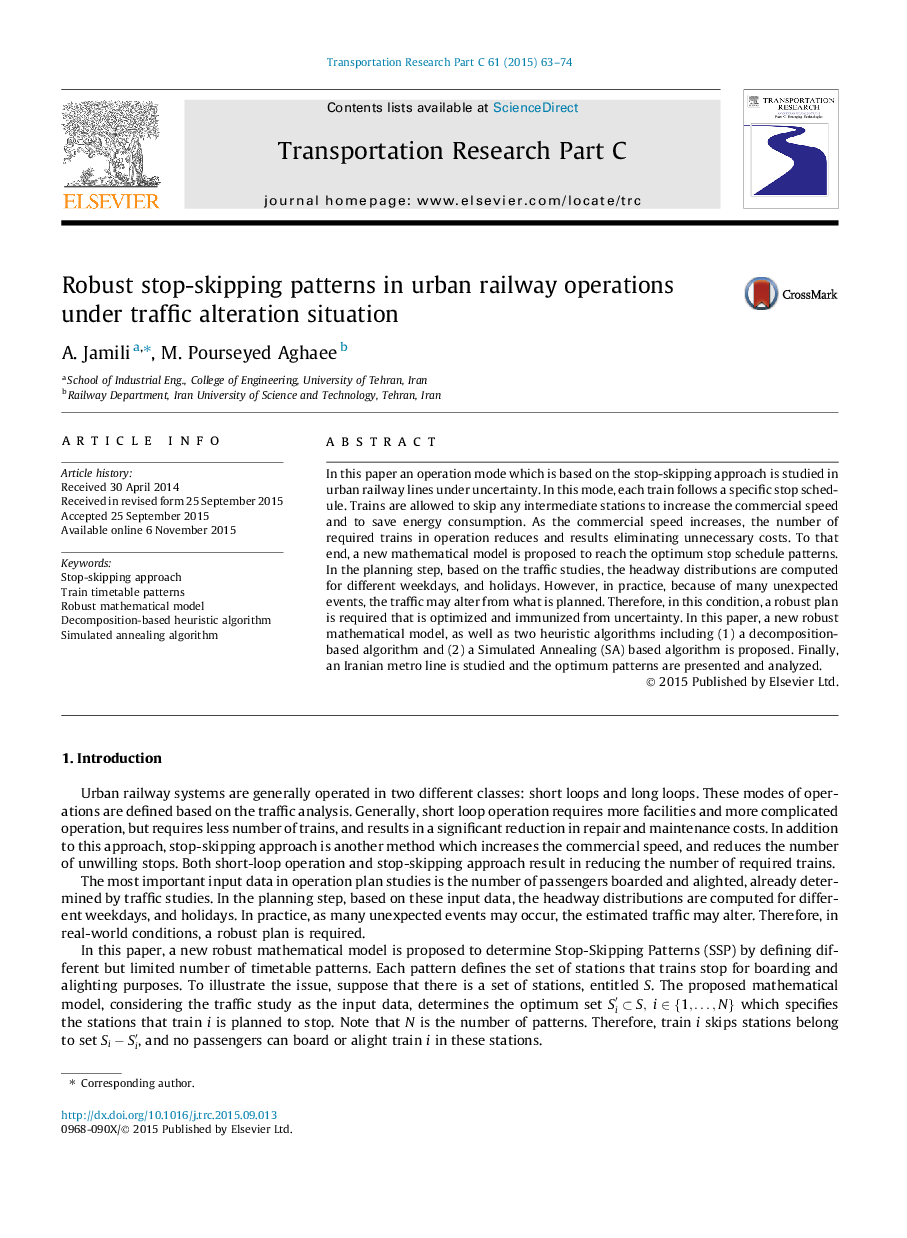| Article ID | Journal | Published Year | Pages | File Type |
|---|---|---|---|---|
| 526355 | Transportation Research Part C: Emerging Technologies | 2015 | 12 Pages |
•We propose a new model for stop-skipping patterns for urban transport systems.•We apply a robust approach to immunize the optimum solution from uncertainty.•We propose two heuristic algorithms to reach good solutions in a rational amount of time.•The results demonstrate a significant improve in commercial speed.•By this approach, the number of required trains in the studied metro line reduces by 2 sets.
In this paper an operation mode which is based on the stop-skipping approach is studied in urban railway lines under uncertainty. In this mode, each train follows a specific stop schedule. Trains are allowed to skip any intermediate stations to increase the commercial speed and to save energy consumption. As the commercial speed increases, the number of required trains in operation reduces and results eliminating unnecessary costs. To that end, a new mathematical model is proposed to reach the optimum stop schedule patterns. In the planning step, based on the traffic studies, the headway distributions are computed for different weekdays, and holidays. However, in practice, because of many unexpected events, the traffic may alter from what is planned. Therefore, in this condition, a robust plan is required that is optimized and immunized from uncertainty. In this paper, a new robust mathematical model, as well as two heuristic algorithms including (1) a decomposition-based algorithm and (2) a Simulated Annealing (SA) based algorithm is proposed. Finally, an Iranian metro line is studied and the optimum patterns are presented and analyzed.
